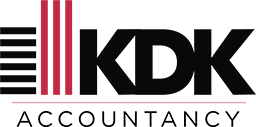Running a business is quite a challenging task. Aside from handling daily operations, marketing, and customer service, business owners must closely monitor their finances. Understanding the financial health of your small business is crucial for making informed decisions and ensuring long-term sustainability. By tracking and analyzing key financial metrics, you can evaluate your business’s progress and confidently make data-driven decisions.
Revenue
Revenue is the lifeblood of any business, making it one of the most critical financial metrics to track. It encompasses the total income generated from the sale of products or services. By tracking revenue, you can assess the overall performance of your business and make informed decisions. Monitoring revenue trends over time can help you identify periods of growth or decline, enabling you to make strategic adjustments accordingly.
Profit Margin
Although revenue is undeniably important, more is needed to provide a complete picture. Profit margin, on the other hand, reveals how efficiently your business is converting revenue into profit. This key indicator is derived by dividing your net profit (revenue minus expenses) by your total revenue, expressed as a percentage. A healthy profit margin indicates that your business is managing costs effectively. By tracking your profit margin over time, you can identify areas where you may need to cut costs or increase prices.
Gross and Operating Margins
Gross margin represents the percentage of revenue remaining after deducting the cost of goods sold (COGS) while operating margin encompasses operating expenses like salaries, rent, and utilities. These margins offer valuable insights into your business’s profitability at various levels and help identify areas where cost management is needed. By comparing your gross and operating margins, you can determine which costs are eating into your profits and take action to reduce them.
Return on Investment (ROI)
ROI is a metric by which you can assess the profitability of specific investments or projects. It goes beyond evaluating overall business health and delves into the success of individual initiatives. Calculating ROI is instrumental in guiding resource allocation to achieve maximum returns. By diligently tracking ROI, you can identify which investments are paying off and adjust your strategy accordingly.
Break-even Point
The break-even point is the level of sales at which your business covers all its costs, resulting in zero profit or loss. Knowing your break-even point is essential for setting sales targets and pricing strategies. It helps you understand how much you need to sell to cover your expenses and start making a profit. By monitoring your break-even point, you can ensure that you’re pricing your products or services correctly and that your business is sustainable in the long run.
Ensure Your Business Success With KDK Accountancy
Monitoring these financial metrics can help guide you through critical decisions about your small business. By analyzing these metrics regularly, you can identify areas needing improvement and make informed decisions to guarantee the long-term success of your business. Remember, being proactive about your finances is critical to financial sustainability and growth.
If you’re in need of further expertise and guidance, consider contacting KDK Accountancy in Orlando, FL. Our experienced team can help you make your business thrive, expand, and achieve new heights. Don’t hesitate to call us at (407) 759-5363 or visit our website to schedule a complimentary consultation.






